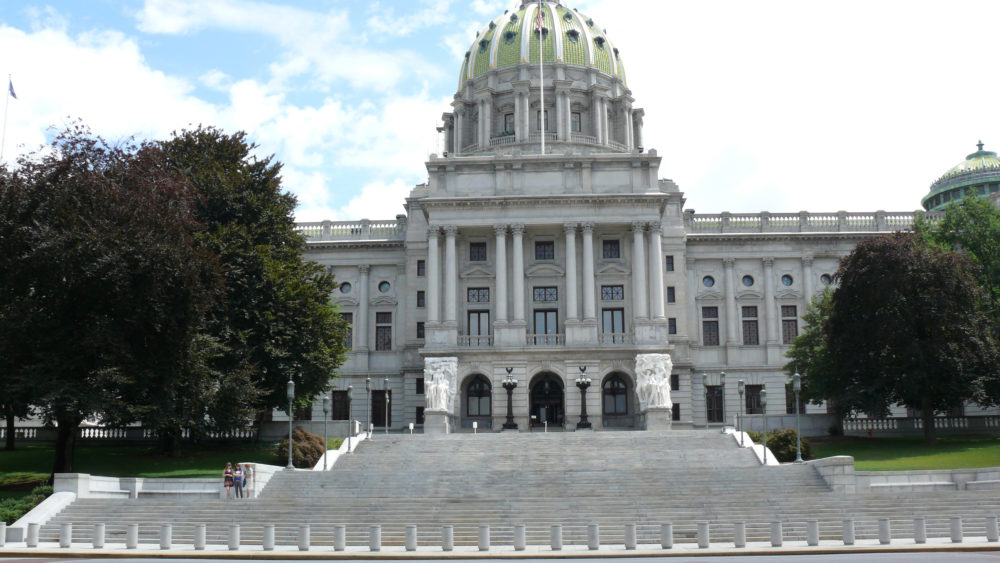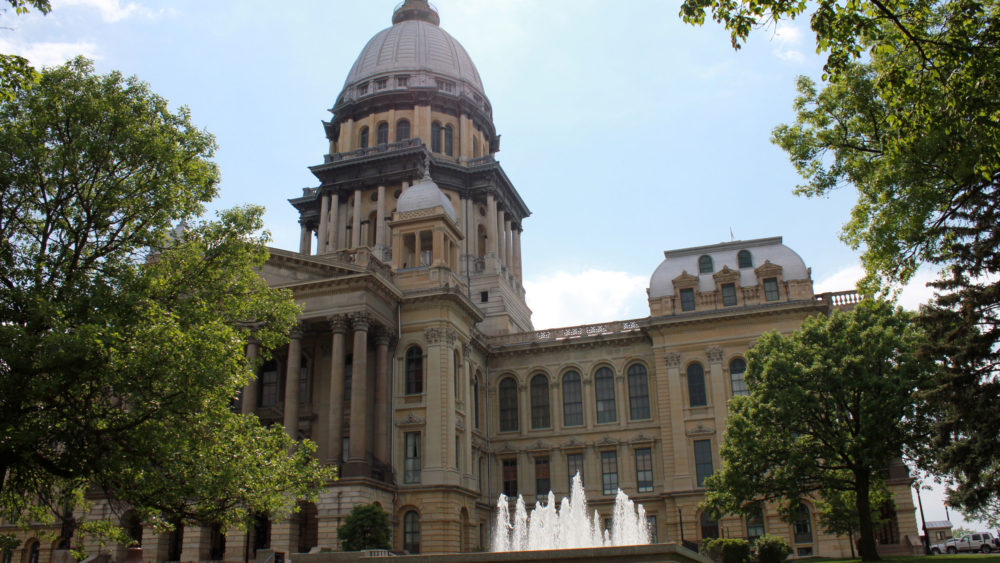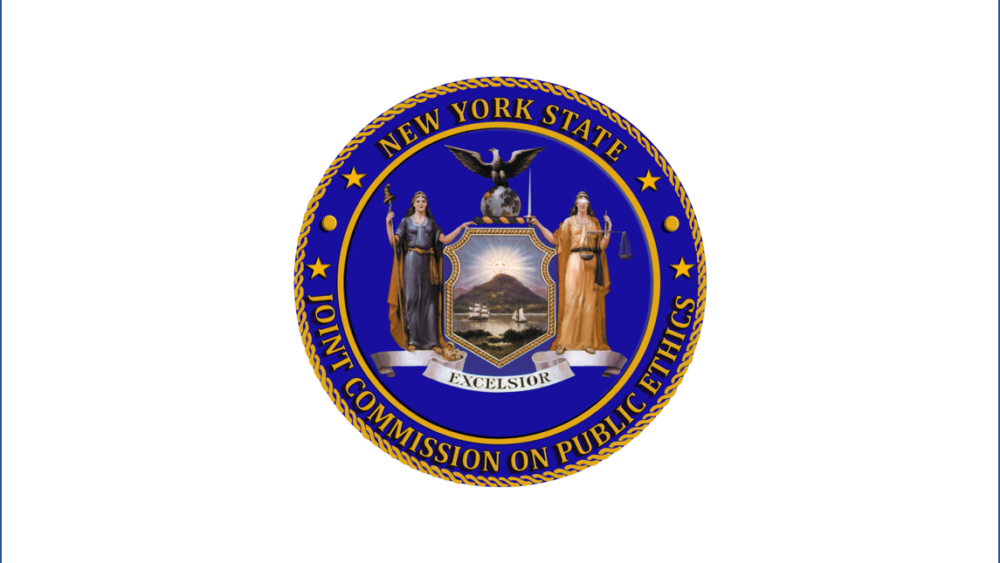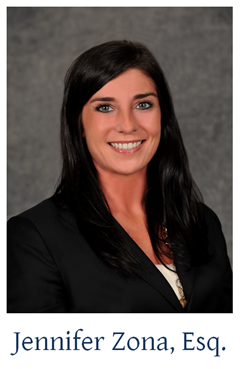April 8, 2020 •
Pennsylvania Governor Grants Extension For Lobbying Reports

Pennsylvania Capitol Building
Gov. Tom Wolf granted the Department of State’s request to extend the deadline for filing lobbying reports and temporarily waive the notarization requirement for campaign finance reports. The governor granted the request in response to COVID-19 and to minimize delays […]
Gov. Tom Wolf granted the Department of State’s request to extend the deadline for filing lobbying reports and temporarily waive the notarization requirement for campaign finance reports.
The governor granted the request in response to COVID-19 and to minimize delays in required reporting.
The lobbying disclosure report deadline for the first quarter is extended until July 30.
The reports are required on the same date as the second quarterly report but must be filed separately.
The governor also granted a temporary waiver of the notarization requirement for campaign finance reports and campaign finance statements filed by political committees and candidates for public office.
The waiver allows the required documents to be filed online until the COVID-19 health emergency subsides.
Filers must sign, either physically or typed, and date their report or statement cover sheet.
For filers who file on paper, the department will accept emailed campaign finance reports for the duration of the emergency.
Filers must email the campaign finance reports to: RA-stcampaignfinance@pa.gov.
March 17, 2020 •
Illinois Extends All Filing Deadlines 30 Days

Illinois State Capitol Building
The Office of the Secretary of State has closed through March 31 due to the COVID-19 outbreak. Online access remains available to all lobbyists and authorized agents. Statutorily required deadlines, including lobbying semimonthly reports, are extended for 30 days. The […]
The Office of the Secretary of State has closed through March 31 due to the COVID-19 outbreak.
Online access remains available to all lobbyists and authorized agents.
Statutorily required deadlines, including lobbying semimonthly reports, are extended for 30 days.
The office indicates this status may be updated as operations are reviewed.
December 5, 2019 •
New York Commission Announces Enforcement of Specificity Requirements

The New York Joint Commission on Public Ethics (JCOPE) announced the commission will require 2019 bimonthly reports due in September and later to include the level of specificity required by lobbying regulations. The commission will require lobbying activity information to […]
The New York Joint Commission on Public Ethics (JCOPE) announced the commission will require 2019 bimonthly reports due in September and later to include the level of specificity required by lobbying regulations.
The commission will require lobbying activity information to correctly disclose the focus type, focus (including the specific bill, resolution, or executive order), the identifying number, description of the focus, type of lobbying communication, and names of the party lobbied.
Lobbyists may be required to amend previously filed reports in September and November to comply with the specificity requirements.
JCOPE has produced a guideline, “How to Properly Disclose Lobbying Activities” on their website outlining the required information required for proper disclosure.
August 22, 2019 •
Portland Auditor Opens Public Comment Period for Proposed Lobbying Regulation Changes

The Portland Auditor has opened the public comment period for the proposed administrative changes to the city’s lobbying regulations. The revised rules clarify lobbying including grassroots lobbying and attempts to gain goodwill. Fiscal disclosures will be required to include expenses […]
The Portland Auditor has opened the public comment period for the proposed administrative changes to the city’s lobbying regulations.
The revised rules clarify lobbying including grassroots lobbying and attempts to gain goodwill.
Fiscal disclosures will be required to include expenses related to grassroots lobbying.
The proposed rule changes will also provide guidance on governments registering as lobbying entities if certain types of lobbying occur.
Governments will be considered lobbying entities when certain outside individuals lobby on their behalf.
The regulation changes will also exclude certain cultural gifts from the city’s lobbying registration and reporting requirements if the market value of the gift cannot be easily determined and declining the gift is likely to cause offense.
City officials will not be required to report certain ceremonial, hand-made, or other culturally specific gifts.
However, such gifts must still be accepted on behalf of the city and documented in accordance with city rules.
Additionally, the revised rules will provide guidance on when lobbying groups and city officials may be fined for late filings.
The auditor’s office will issue a warning notice for late filings.
Reports must be filed within 24 hours after the deadline or a late fee will be assessed up to $500 per report.
The public comment period will be open until September 23.
May 30, 2019 •
Vermont General Assembly Adjourns Sine Die

Vermont Capitol Building
The Vermont General Assembly adjourned sine die on May 29. During the session the Legislature introduced a bill changing lobbying reporting dates from the 15th to the 3rd of the month. Lawmakers also introduced Senate Bill 157, proposing to grant […]
The Vermont General Assembly adjourned sine die on May 29.
During the session the Legislature introduced a bill changing lobbying reporting dates from the 15th to the 3rd of the month.
Lawmakers also introduced Senate Bill 157, proposing to grant the ethics commission authority to adopt an enforceable code of ethics, adjudicate complaints, and impose penalties upon finding a violation.
Both bills will carryover to 2020 as they failed to pass this legislative session.
December 2, 2016 •
Oklahoma Ethics Commission Proposes Changes to Lobbyist Filing Dates
The Oklahoma Ethics Commission recently approved a proposed rule amendment regarding due dates for lobbyist registration and reporting. The intent is to make registration and reporting more convenient by providing more time between the end of the registration or reporting […]
 The Oklahoma Ethics Commission recently approved a proposed rule amendment regarding due dates for lobbyist registration and reporting.
The Oklahoma Ethics Commission recently approved a proposed rule amendment regarding due dates for lobbyist registration and reporting.
The intent is to make registration and reporting more convenient by providing more time between the end of the registration or reporting period and the due date for filing. Registration renewals would be required by January 15, and lobbying reports would be due on or before the 15th in any month a report is required.
The amendment is still pending. If lawmakers do not disapprove the rule, the changes will go into effect when the Legislature adjourns in May.
March 4, 2015 •
Ask the Experts – Lobbyist Reporting During Legislative Sessions
Q. Many of the state legislatures I lobby are currently in session. Does this affect when my lobbying reports are due? A. While some states have reporting schedules that do not vary from year to year, others tie their lobbyist […]
 Q. Many of the state legislatures I lobby are currently in session. Does this affect when my lobbying reports are due?
Q. Many of the state legislatures I lobby are currently in session. Does this affect when my lobbying reports are due?
A. While some states have reporting schedules that do not vary from year to year, others tie their lobbyist reporting schedules to their legislature’s activity. Currently, 11 states have reporting schedules that vary to some degree with their legislative sessions: Alaska, Arkansas, Connecticut, Georgia, Hawaii, Idaho, Mississippi, Montana, Nebraska, Nevada, North Carolina, and Rhode Island. Some of these states require additional reports during the legislative session, while others tie reporting dates to the session’s adjournment.
For example, Georgia requires legislative lobbyist reports twice per month while the Legislature is in session. Reporting frequency decreases to once per month once the Legislature adjourns. Connecticut, Arkansas, and Alaska all require monthly legislative lobbyist reports while their legislatures are in session.
Other states have reports tied to the official adjournment of the legislature. Mississippi requires an end-of-session report 10 days after the Legislature adjourns sine die. Some legislatures, such as Mississippi and Nebraska, have the flexibility to change their planned adjournment date, in which case a report may be due earlier or later than previously announced. It is also important to note only official adjournment dates affect the reporting schedule. State legislatures concluding business for the year, but not officially adjourned, may still require a lobbyist to use the “in session” reporting schedule. Rhode Island, for example, requires monthly reports only when the Legislature is in session, but the Legislature does not officially adjourn until January of the following year.
Special legislative sessions may also trigger a lobbying report. States such as Nebraska and Hawaii require an additional report following the adjournment of a special legislative session. In states requiring special session reports, a report may be required even if the full legislature did not convene in special session.
Each jurisdiction’s statutory reporting schedule is different. Be sure to know your state’s reporting schedule and whether a legislative session will change your requirements.
You can directly submit questions for this feature, and we will select those most appropriate and answer them here. Send your questions to: experts@stateandfed.com.
(We are always available to answer questions from clients that are specific to your needs, and we encourage you to continue to call or e-mail us with questions about your particular company or organization. As always, we will confidentially and directly provide answers or information you need.) Our replies to your questions are not legal advice. Instead, these replies represent our analysis of laws, rules, and regulations.
December 17, 2012 •
Washington Lobbying Law Changes on the Horizon?
Pre-filed bill would require electronic filing and a yearly fee
 A bill has been pre-filed for the upcoming 2013 legislative session that will affect lobbyists and PACs. The bill will require that all reports filed by lobbyists be done electronically by January 1, 2014. Currently, electronic filing of reports is voluntary.
A bill has been pre-filed for the upcoming 2013 legislative session that will affect lobbyists and PACs. The bill will require that all reports filed by lobbyists be done electronically by January 1, 2014. Currently, electronic filing of reports is voluntary.
Also, a new yearly fee of $200 will be required of all PACs and lobbyists and lobbyist employers whose compensation received or expenses paid is more than $10,000 in the previous calendar year.
The Washington legislature will not convene its new legislative session until January 14, 2013.
March 7, 2012 •
Ask the Experts – Reportable LDA Expenditures
Here is your chance to “Ask the Experts” at State and Federal Communications, Inc.

Q. As an organization employing in-house lobbyists, what expenditures am I required to capture for inclusion in the aggregate dollar amount reported on my quarterly Federal LD-2 report?
A. There are a variety of expenditures that Federal registrants are required to track and report in an effort to provide a good faith estimate of their activity. These expenditures include:
- Compensation, expenses and overhead associated with “registered” lobbyist employee activity. For Federal purposes, a “registered” lobbyist is an individual who meets the statutory definition of a lobbyist and is listed by name on the LD-2 report;
- Compensation, expenses and overhead associated with any non-lobbyist employee who engaged in lobbying activity during the quarter (even though they do not meet the statutory definition of lobbyist). Their names are not listed on the report, but the value of their activity is included;
- Dues paid to an association or membership organization during the quarter that are attributable to lobbying. This amount is typically a percentage of the overall payments made to the membership organization and is ascertained by speaking with the outside entity directly. Importantly, dues payments for lobbying activities should be included in the estimate for the quarter in which they are paid and cannot be apportioned over a longer period of time;
- Retainers/fees incurred during the quarter to outside consultants/firms for lobbying activities. These fees are required to be included during the quarter in which they are incurred regardless of whether billing or payment has been made.
If we can be of assistance in helping to identify reportable expenditures, please let us know.
You can directly submit questions for this feature, and we will select those most appropriate and answer them here. Send your questions to: marketing@stateandfed.com.
(We are always available to answer questions from clients that are specific to your needs, and we encourage you to continue to call or e-mail us with questions about your particular company or organization. As always, we will confidentially and directly provide answers or information you need.) Our replies to your questions are not legal advice. Instead, these replies represent our analysis of laws, rules, and regulations.
January 11, 2012 •
Idaho Secretary of State Announces Lobbyist Report Electronic Filing
E-filing to Begin with February 15, 2012 Report
 Electronic filing for lobbyist reports will be available beginning with the report due February 15, 2012 covering the month of January 2012.
Electronic filing for lobbyist reports will be available beginning with the report due February 15, 2012 covering the month of January 2012.
You can read the press release from the Office of the Secretary of State here.
November 15, 2011 •
Lobbyist Compliance Changes in Allegany County, Maryland
ALLEGANY COUNTY, MARYLAND: A bill providing further regulation of public ethics became effective November 13, 2011.
 Code Home Rule Bill 5-11 expands regulation regarding conflict of interest, lobbyist reporting, gift law, and enforcement of violations.
Code Home Rule Bill 5-11 expands regulation regarding conflict of interest, lobbyist reporting, gift law, and enforcement of violations.
Changes include a lower registration threshold for lobbyists at $200 of food, entertainment, or gifts to public officials in a calendar year. The ethics commission will now be able to asses a late fee of $10 per day for failure to timely file lobbyist registrations and reports.
September 28, 2011 •
Ask the Experts – Keeping Track of Reportable Expenditures in Indiana
Here is your chance to “Ask the Experts” at State and Federal Communications, Inc.

Q. I’m registered as a legislative lobbyist in Indiana. How should I keep track of reportable expenditures for my upcoming report due in November?
A. The Indiana Lobby Registration Commission (ILRC) is currently in the process of reviewing the reporting guidelines for lobbyist expenditures and gifts. As fall kicks off and the November reporting deadline will soon be upon us, it is important to review key reporting changes.
Specifically, the ILRC does not consider a meal expenditure on behalf of a legislator to be a gift, but instead, an entertainment expenditure, as long as the lobbyist is present when the meal is consumed. Per the ILRC’s reporting guidelines, please make sure you save an itemized receipt outlining the exact cost of the meals associated with reportable legislators. Here are some important things to remember regarding entertainment expenditures, including meals:
- When determining how much to attribute to a particular legislator, only direct costs must be associated with the legislator. Unlike most states, determining a pro-rata cost of an official’s meal by dividing the bill by the number of people present is not permissible. Instead, you must save an itemized receipt, and attribute only the amount of the specific items ordered for that particular legislator. Tax and tip must be appropriately allocated as well.
- If you are not present when making an expenditure, this qualifies as a gift, and is subject to special reporting guidelines. Starting with this reporting period (form was not developed until late April), a gift report must be submitted if a gift is given to a legislator equaling $50.00 per day, or $250.00 in the aggregate. This report is due 15 business days after the gift is given. A copy must be sent to the legislator who is named in the report. Moreover, informed prior consent must be obtained from the legislator before the gift is given.
You can directly submit questions for this feature, and we will select those most appropriate and answer them here. Send your questions to: marketing@stateandfed.com.
(We are always available to answer questions from clients that are specific to your needs, and we encourage you to continue to call or e-mail us with questions about your particular company or organization. As always, we will confidentially and directly provide answers or information you need.) Our replies to your questions are not legal advice. Instead, these replies represent our analysis of laws, rules, and regulations.
State and Federal Communications, Inc. provides research and consulting services for government relations professionals on lobbying laws, procurement lobbying laws, political contribution laws in the United States and Canada. Learn more by visiting stateandfed.com.

